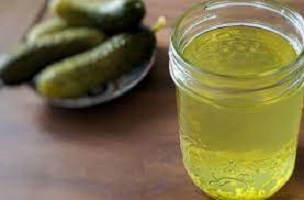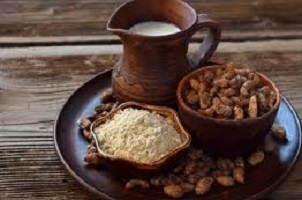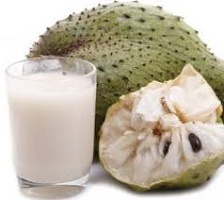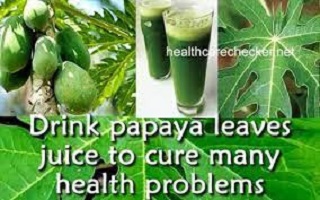Homemade Pickle Juice
Homemade Pickle Juice
Pickles have been a mainstay in many civilizations for ages; they originated in Mesopotamia about 4,000 years ago, when people would soak cucumbers in an acidic brine to preserve them.

Some people adore them, and for us that do, they are quite simple to make and keep well in the fridge for a very long time. Still, others detest them.
With just a few simple, fresh ingredients, it tastes great and is far more affordable and high-quality than store-bought alternatives!
In addition, the pickling juice adds a great taste and keeps the chicken juicy and moist, making it an excellent marinade for chicken!
Pickles are frequently used as a side dish to go with meals in the United States, as a condiment on burgers and sandwiches, or cut up and served as pickle relish with hot dogs and sausages.
The wonderful thing about pickles is that the “pickle juice” that the cucumbers are submerged in is just as tasty and healthy as the actual “pickle part.”
Table of Contents
What are the best uses for homemade pickle juice and how can one make pickle juice
Pickle juice can be prepared from home or bought by the gallon and utilized straight out of a jar of store-bought pickles. Pickle juice can be included in several recipes.
Many individuals (particularly sportsmen) drink it even though it may not sound very pleasant because of its alleged health benefits.
Continue reading to learn what prickly juice is. Pickle juice recipes, benefits, uses for pickled eggs, and much more are included in this article.
What Is Pickle Juice?
Rich in vinegar and brine, pickle juice contains salt and other minerals and is regarded as a rehydrating beverage.
You should also think about incorporating pickle juice, which is a highly nutritious drink that doesn’t need to be juiced, into your diet.
The idea of drinking it, though, can make your lips pucker because it’s a brine that’s often produced with water, salt, and distilled white vinegar to pickle cucumbers.
The benefit of pickle juice
Many health benefits of pickle juice include improved digestion, increased immunity, relief from cramping in the muscles, and regulation of blood sugar.
Pickle juice is used by athletes worldwide for its amazing qualities, albeit some of these claims still need scientific validation.
Other advantages consist of:
Relief from muscle cramps.
It’s thought that pickle juice, with its natural vinegar acids and salt content, instantly eases cramps that come from vigorous exercise. It might function best if taken right after a strenuous workout, without food.
Hydration.
Since pickle juice has a high sodium content and a small quantity of potassium, it is thought to help restore electrolytes that have been lost.
Many athletes turn to pickle juice or sports drinks to replenish their fluids after working out or engaging in intensive physical activity, as water may not be sufficient after such periods.
Defense system assistance.
Antioxidants included in pickle juice, such as vitamins C and E, boost the immune system, encourage tissue growth and repair, and aid in the body’s defense against infections.
Reduced amounts of blood sugar.
A few studies have shown that the vinegar in pickle juice can help control or lower blood sugar levels after meals and is a fantastic natural treatment for persons with type 2 diabetes.
Additionally, it might lower the chance of developing diseases including obesity and renal impairment.
Management of weight.
Energy drinks are heavy in calories and added sweets; pickle juice offers a low-calorie, fat-free alternative.
Therefore, if taken in moderation, it might be a fantastic alternative for those trying to lose weight.
Gut health.
It is well known that eating and drinking fermented foods and beverages helps support healthy digestion and balance the good and bad bacteria in the stomach. One such fermented beverage is vinegar, which helps to avoid problems like heartburn and cramping in the stomach.
Side Effects of Pickle Juice
Even though pickle juice has a lot of potential health benefits, excess of anything is never a good thing. Several considerations should be made before incorporating pickle juice into your daily diet.
Pickle juice may be dangerous for people with high blood pressure because of its high salt content.
Furthermore, the acidity of the vinegar may exacerbate pre-existing stomach ulcers, resulting in agony and suffering all around.
In summary, pickle juice is usually seen as safe for most individuals to consume—and in some situations, even helpful—as long as it is used in moderation.

Recipe for Pickled Juice Brine
While pickle juice is readily available premade in stores, it is equally simple to prepare at home with a few staple components.
It takes at least five days to properly pickle vegetables, such as cucumbers, but it just takes fifteen minutes to make pickle juice!
You can adjust the components to suit your needs and preferences by modifying the recipes for pickle juice that you make at home.
Among the few fundamental ingredients are:
- Liquid
- The Vinegar
- Salt
- A variety of spices and herbs
- Vegetables of your choice, optional but optional: cucumbers, onions, jalapeños, and cabbage
Following these guidelines will help you make pickle juice at home:
- Firstly, get your spices ready. Grate a few teaspoons of ginger, peel and chop a few garlic cloves, and add any herbs or spices you choose to your pickle juice.
- You can add any veggies you like for a little kick.
- Then, in a medium saucepan, mix the spices, vinegar, salt, and water.
- Any vinegar type with an acidity level of at least 5% is suitable for use. Apple cider vinegar, rice wine vinegar, and white distilled vinegar are a few popular choices.
- For optimal results, use a 2:1 water-to-vinegar ratio for making pickle juice.
- Reduce the heat to low and allow the ingredients to gently simmer.
- After all of the ingredients have been combined, take the saucepan off of the burner and let the liquid cool to room temperature.
- Transfer the liquid to a refrigerator-safe container and refrigerate it to speed up the cooling process.
- Once the liquid has cooled completely, pour it into a lidded, airtight container using a fine-mesh sieve. This will capture the pickled veggies as well as any leftover bits of herbs and spices.
You can either serve and consume it right once or keep it chilled for later use.
Pickle Juice Recipe for Pickled Eggs
Thoughtlessly unappealing at first, pickled eggs are rather tasty when served as an appetizer or a nutritious snack alongside deli meats.
They are quite simple to make; you can either use store-bought pickle juice or make your own and dip the boiled eggs in it.
This is how to make pickle juice for pickled eggs, step by step:
- Firstly, in a small saucepan, combine the vinegar, salt, water, and pickling spices.
- Stirring continuously, bring the mixture to a boil.
- After turning down the heat to low, cover the pan and simmer for ten minutes.
- You can choose to keep the liquid unstrained or strain it using cheesecloth or a sieve.
- Transfer a few hardboiled eggs to a lidded jar and cover the eggs with the liquid.
- To let the pickle juice flavor the eggs, place the jar in the refrigerator for approximately two weeks after covering it with a lid.
- Soak the eggs for 6 to 8 weeks in the pickle juice for a more intense flavor.
Pickled eggs can be prepared in various ways. One way is to add sliced and peeled beet to the pickle juice; this will give the eggs a lovely pink hue!
As an alternative, you might add some steamed spinach for a green hue and a subtle spinach taste, or some sliced jalapeño peppers for a spicy burst.
Ideas for Using Pickle Juice ~ Best Uses for Pickle Juice
Pickle juice is a multipurpose beverage with numerous health advantages and a wide range of applications.
You may use leftover pickle juice from a jar of store-bought pickles in addition to using homemade pickle juice—rather than throwing it down the drain!
Here are some of the best uses for brine made from pickle juice:
- Enjoy it “as is” to reap all of its health advantages.
- Brine any desired veggies, onions, cucumbers, and hardboiled eggs.
- Add margarine to soft cheeses, including goat cheese and mozzarella.
- Since margarine is an excellent meat tenderizer, marinate steaks and pork chops.
- Replace vinegar and other strong acids (like lemon juice) with it.
- To add some zing to sauces like tartar sauce, Worcestershire sauce, and BBQ sauce.
- Use It as a Brine or Marinade: You may use pickle juice in place of vinegar in any homemade marinade. It pairs very well with steak or pig.
- Make Your Tuna Extra Special – Incorporate pickle juice into your upcoming dish of tuna, chicken, egg, or potato salad to experience a delightful dill taste.
- Incorporate pickle juice into your upcoming homemade mac & cheese dish, “Grown-Up Mac & Cheese.” You’ll have a dish that appeals to adults and children alike.
- Seasonal Seafood: Since dill and seafood go along SO AMAZINGLY, this flavor is frequently utilized with seafood. You will applaud the fish when you poach or braise it with your brine.
- Add It to Soups: Pickle juice is a fantastic addition to soups, such as tomato, potato, borscht, or clam chowder.
- Prepare raw, with fresh fish.
- Prepare flavorful dill bread at home.
- When the potatoes are cooking, add them to give them some depth.
- Make some insanely delicious potato salad with it.
- Apart from being an excellent culinary tool, pickle juice can also be used for several non-food uses.
- For a chemical-free method of cleaning stubborn stains on your copper pans and unclean cooktops, use it.
- Pickle juice is a fantastic technique to keep weeds away from your garden and indoor plants.
How is pickle juice made?
The three major elements of pickle brine, also known as juice, are vinegar, water, and salt.
The other ingredients that give the brine its flavor, like as dill, red pepper, garlic, and so on, are considered aromatics. Salt serves as a preservative, tenderizer, and flavoring.
Why is pickle juice used as a natural home remedy?
Pickle juice may seem disgusting, but there are a few benefits to think about. In addition to being hydrated, it may assist blood sugar, digestive health, and muscle cramping.
This briny beverage has long been a favorite among athletes. It was unclear to experts why pickle juice was a wonderful beverage to have after working out.
Does pickle juice contain salt?
Probiotics are sources of bacteria that can support intestinal health, and some pickle juice contains them. Cucumbers are packed in a brine—a solution of salt water—and let to set until bacteria proliferate and eat most of the cucumber’s carbohydrates, producing the probiotic-rich pickle juice.
What is a pickle made of?
Cucumbers and other vegetables are brined in a mixture of vinegar, salt, and spices to make pickles.
Vinegar adds a hint of sourness to pickles and aids in their preservation.
What is pickle juice called?
Pickle juice is also popularly referred to as the “pickleback,” or alcohol chaser, throughout the world.
Do vinegar and pickle juice have the same properties?
The main ingredient in pickle juice, which is made from the brine of pickled cucumbers, is acetic acid, which is distilled white vinegar.
The body is said to benefit from this acetic acid in several ways. The ability of pickle juice to ease muscle cramps is one of its main benefits.
Why drink pickle juice?
Pickle juice is high in sodium and low in potassium and magnesium, which are forms of electrolytes. It can therefore be used as a natural electrolyte, according to Skoda.
Rehydrating after exercise can be beneficial. Skoda recommends selecting a pickle with a vinegar base that is free of preservatives and yellow coloring for optimal results.
Why do Americans drink pickle juice?
“One of the most important things in avoiding muscle cramping is getting them to replenish their electrolytes,” he explains.
While it’s not usually very pleasant to drink salty water, dill pickle juice has long been known to have therapeutic benefits.
Why do athletes use pickle juice?
Restore energy: Your body and mind are exhausted after a strenuous workout. You’re not feeling very energetic.
Your body needs minimal carbs to replenish depleted glycogen to give you a boost. Rich in vinegar, or acetic acid, pickle juice can aid in the metabolism of carbohydrates to replenish energy.
Dill pickle juice recipe ~ What ingredients go into making dill pickle juice?
The three major elements of pickle brine, also known as juice, are vinegar, water, and salt. The other ingredients that give the brine its flavor, like as dill, red pepper, garlic, and so on, are considered aromatics.
Salt serves as a preservative, tenderizer, and flavoring.
Best pickle juice recipe ~ What are the ingredients in pickle juice?
The three major elements of pickle brine, also known as juice, are vinegar, water, and salt.
The other ingredients that give the brine its flavor, like as dill, red pepper, garlic, and so on, are considered aromatics.
Salt serves as a preservative, tenderizer, and flavoring.
What is the shelf life of homemade pickle juice? How long does pickle juice last after being opened?
Pickle juice typically has a two-year shelf life when sealed, but if it is left unopened, it will keep for roughly three months after that period.
Once opened, your jar should keep for around three months in the refrigerator if the lid is kept on tightly.
What is the shelf life of homemade pickling juice?
Even in a sweet pickle, the brine acts as a preservation agent because of its acidity, thus removing the cucumber from the jar won’t shorten its shelf life.
When kept in the refrigerator, the brine should easily last six months, if not longer.
Easy pickle juice recipe ~How to make liquid pickle?
Basic Pickling Liquid
- 3 cups white or apple cider vinegar.
- 3 cups water.
- ¼ cup sea salt.
- ¼ cup sugar (for sweet pickles)
- 2-4 dried hot chilies (for spicy pickles)
- Dried herbs and spices (mustard seed, celery seed, bay leaf, peppercorn, etc.)
Pickle Brine Vinegar, Water, Salt Ratio
The basic proportion for making fast pickles is vinegar to water (1:1), along with a small amount of sugar and salt.
The 3:2:1 technique, which calls for three parts vinegar, two parts water, and one component sugar, is another ratio that is frequently used.
How to make dill pickles ~What are dill pickles made of?
What Are Dill Pickles? Dill pickles, by far the most popular variety, receive their name from the dill herb that’s used in the recipes.
Add fresh dill and other flavor-enhancing herbs like mustard seeds and pepper to a brine made with vinegar or salt.

Pickling brine ratio salt
The Brine: 7 grams of salt to water ratio
one cup of water with s of salt. Or use a generous teaspoon of salt for every cup of water.
Because this ratio is meant for a shorter fermentation period (3-5 days), one can sip the brine (like a shot). It is also not overly salty. Crispy pickles with a hint of fermentation!


